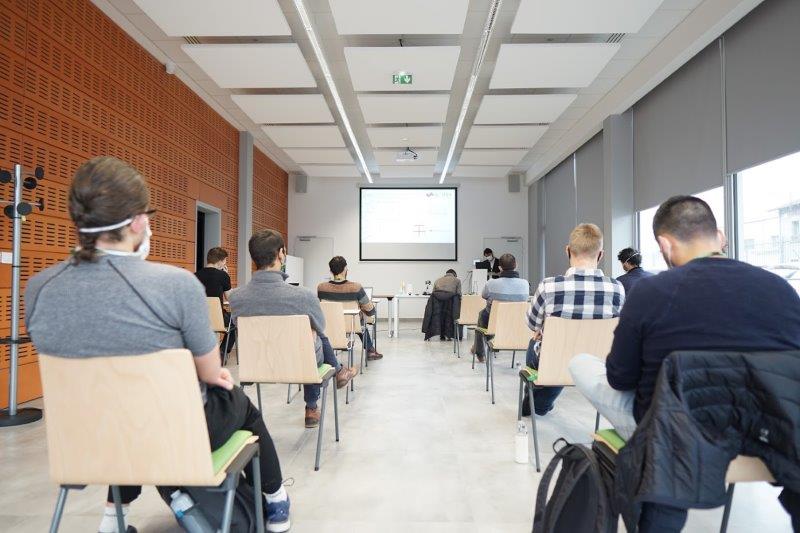PhD Nicolas MANDULEY “Contribution to Insulation Coordination Studies for VSC-HVDC Systems”

Abstract
HVDC power transmission systems are developing and expanding rapidly all over the world. Some of the main reasons behind this growth are the restrictions and limitations regarding the use of the Right-of-Way (ROW) and the increasing commissioning of offshore wind parks. Both cases converge into solutions involving the installation of long underground or submarine cables, for which AC technologies are not suitable over long distances. Moreover, HVDC transmission offer a series of advantages over HVAC in terms of power transmission capacity and reduction of losses, which may lead to an increase in the commissioning of HVDC lines and the conversion of existing AC overhead lines into DC.
It is within this context that this thesis is presented as a contribution to the development of high-scale HVDC systems, particularly regarding insulation coordination for Voltage Source Converter (VSC) based technologies. In particular, the Modular Multilevel Converter (MMC) represents one of the most promising VSC implementations in HVDC transmission.
Insulation coordination consists of the selection of the required dielectric strength of the insulating materials in a utility. It ensures the safe operation of the system in both steady state and transient conditions such as faults, lightning strikes and other phenomena generating overvoltages. Therefore, insulation coordination is a crucial stage of any engineering project in order to guarantee not only the integrity of the components, but also the safety of the staff at the installations.
Existing standards provide procedures and guidelines on how to conduct insulation coordination studies for HVAC and LCC systems. As of today, no existing standard covers VSC insulation coordination. This thesis aims to constitute a contribution towards the development of detailed insulation coordination procedures for VSCs, and particularly for the MMC, taking into account the specific characteristics and transient behaviour of VSCs, and their differences with AC and LCC systems.
In line with such purposes, an exhaustive study of the literature is performed in order to identify the fundamental aspects that need to be considered to adapt the insulation coordination principles to VSC-HVDC systems. Studies are conducted using electromagnetic transient modelling in EMTP to study in detail the behaviour of VSC-HVDC systems under transient events leading to the highest overvoltage levels which, in combination with the installation of surge arresters, will determine the insulation requirements of the system.
A procedure is proposed to conduct insulation coordination studies on MMC-HVDC systems. The proposed procedure takes into account all the factors determined to have an influence on the way in which the insulation coordination principles should be applied to MMC-HVDC systems.
In the domain of HVDC overhead lines, there are some challenges regarding the evaluation of the lightning performance of such systems. The existing procedures have been developed for HVAC systems, and some cases require more detailed studies and methodologies to adequately evaluate the lightning performance. Some examples are asymmetric configurations, schemes with surge arresters and double-circuit HVDC overhead lines (especially for studies regarding multiple simultaneous flashovers). In this research, existing procedures have been adapted to VSC-HVDC applications in order to analyse asymmetric configurations, non-linear devices and double flashovers, which conventional methods cannot take into account. Moreover, two solutions for the improvement of the lightning performance using arresters and unbalanced insulation string lengths have been studied and analysed in detail.
Director thesis and co-director thesis
Prof Bertrand Raison (G2ELab) and PhD HDR Alain Xemard (EDF R&D)


